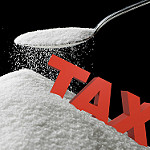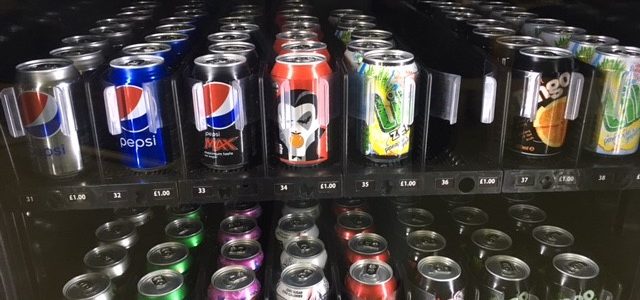 The UK Government levy on sugary drink producers started in April 2018. Our study looks at whether increasing the price of sweet snacks would be as effective.
The UK Government levy on sugary drink producers started in April 2018. Our study looks at whether increasing the price of sweet snacks would be as effective.
We found that a 10% increase in the price of sweet snacks could lead to a similar reduction in consumer demand as the same price increase for sugar-sweetened drinks.
However, such a price increase is estimated to have knock-on effects that may further reduce purchases of sugar-sweetened drinks and other snacks.
Furthermore, as sweet snacks provide twice as much sugar in the diet as sugar-sweetened drinks, the overall reduction on sugar intake could be even greater than that observed with price increases for sugar-sweetened drinks.
Are sweet snacks more sensitive to price increases than sugar-sweetened beverages: analysis of British food purchase data. Smith, Cornelsen, Quirmbach, Jebb, Marteau, 2018.
Access full text
[altmetric doi="10.1136/bmjopen-2017-019788" float="left" popover="left" style="box-shadow: 0 1px 4px rgba(0, 0, 0, 0.2);" class="someclass" type="1"]


 We examined the impact on food selection of the number of (i) healthier and (ii) less healthy snack foods available in an online study of 1,509 adults. Offering additional less healthy options was twice as likely to affect the foods selected than offering additional healthier options. This suggests that removing less healthy as opposed to adding healthier food options could have greater impact on encouraging healthier selections.
We examined the impact on food selection of the number of (i) healthier and (ii) less healthy snack foods available in an online study of 1,509 adults. Offering additional less healthy options was twice as likely to affect the foods selected than offering additional healthier options. This suggests that removing less healthy as opposed to adding healthier food options could have greater impact on encouraging healthier selections. Six English worksite cafeterias increased the proportions of healthier cooked meals, snacks, cold drinks and/or sandwiches available. Healthier options were defined as those with fewer calories (kcal). When cafeterias offered these healthier options, there was a 7% reduction in calories purchased from targeted food categories. Increasing the proportion of lower calorie foods in worksite cafeterias seems a promising intervention for healthier consumption.
Six English worksite cafeterias increased the proportions of healthier cooked meals, snacks, cold drinks and/or sandwiches available. Healthier options were defined as those with fewer calories (kcal). When cafeterias offered these healthier options, there was a 7% reduction in calories purchased from targeted food categories. Increasing the proportion of lower calorie foods in worksite cafeterias seems a promising intervention for healthier consumption.